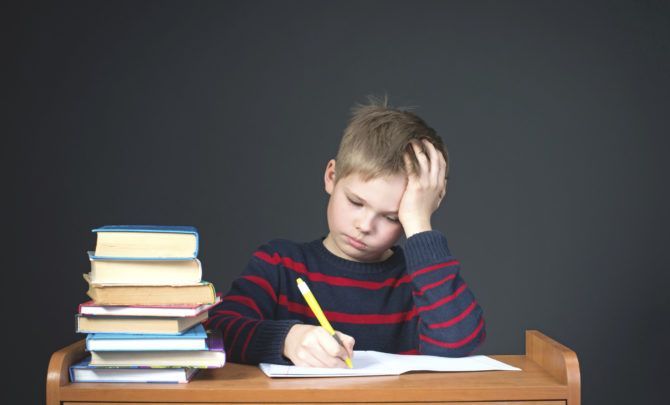Providing High Quality Tutoring to Students of Northbrook & Glenview, Illinois
We Appreciate Being 5 Star Rated by Our Clients!
Blog Layout
How to Help Your Child Handle Their Anxiety
Bill Balatsos • Mar 09, 2021
3 Ways to help reduce your child's anxiety
The pandemic has taken a toll on all of us. However, young people are experiencing anxiety and depression more than any other age group. Students experience stress and anxiety
during a normal school year, so with the pandemic and all of the uncertainty, it is important to pay attention and look for signs that your child is struggling.
For those who are physically going back to school, the anxiety and fear can be palpable. It is important to understand that anxiety is the most common emotional problem in children. Kids can develop crippling worries about many things, from germs to taking a test, to their parents dying. Some anxious kids are painfully shy and avoid things that other kids enjoy. Some have tantrums and meltdowns, and others develop elaborate rituals, like compulsive hand washing or scratching.
As a parent, you may be experiencing anxiety with making the decision about sending your child back to school or keeping them at home. This anxiety may cause sleepless nights, headaches, and irritability. Your child sees what is happening to you and can sense your anxiety. It is important to talk to your child and let them know that everything will be okay. Most likely, your child may be worried about separating from you when they return to school.
Similar to adults, children with anxiety may become irritable and angry. They also might have outbursts and have trouble sleeping. Their physical symptoms might include fatigue, headaches, or stomachaches. Some children keep their worries to themselves, so you may miss symptoms. Whether you notice symptoms
or not, the suggestions below will help your child with reducing anxiety as they face the many changes ahead.
Validate Feelings
You must validate your child’s feelings while also reassuring them that everything will be okay. It is not the time to brush it off or dismiss feelings that may seem small to you. Allow your child to explain exactly what is causing the stress. Are they afraid of getting sick? Are they worried about being separated from you? Are they concerned that they won’t make friends? Whatever the fear, allow them to talk about it. You need to acknowledge it but also let them know that it is going to be okay. If your child explains that they are going to miss you, then tell them that you’ll miss them too. Express your confidence that they can return to school and have a great experience. Also, explain that so many other children are also feeling the same way; they are not in this alone.
Set the Tone
You want to be positive with your child about returning to school. It is not the time to ask probing questions or show your own anxiety, but it is the time to discuss all of the fun it will be for your child to see their friends and teacher(s). You need to lead the charge and talk about the exciting things that will take place at school. You can also explain what you’ll be doing, so that they know you also have things to do. If you are separating from a younger child, you may want to give them a little reminder from home. You could let them have a puzzle piece or a stone. It should be small but something that can remind them of home. Also, remind them that the school day is not that long and after learning so much and having fun, the day will pass by quickly and soon it will be time to come home.
Create a Routine
Over the last several months, you’ve created a routine with your child. Now is the time to establish a new one. Routines help children feel safe and secure, so establish your new routine quickly. You want your child to know they can count on certain things to occur. After the school day, give them time for a snack and then let them get started on their homework. When they finish their homework, they can have time on the computer, outside, or watching a television show. Establish the routine that makes sense for your family; however, you must also be flexible. Schools may close again and return to remote at any time, so prepare your child for the possibility.
It is hard to predict what will happen with schools in the future as we maneuver the pandemic and vaccinations. And, there’s no one-size-fits-all solution for anxiety. But, the general strategies above will help you and your child work through it no matter what the future holds.
For More Information: Signs of Anxiety in Young Kids
Contact Information
Club Z! In-Home & Online Tutoring of Glenbrook
Phone: By Appointment Only
Email: bbalatsos@clubztutoring.com
Business Hours:
- Mon - Fri
- Appointment Only
- Sat - Sun
- Closed




SERVING THESE Cities
Northbrook
Glenview

Content, including images, displayed on this website is protected by copyright laws. Downloading, republication, retransmission or reproduction of content on this website is strictly prohibited. Terms of Use
| Privacy Policy












